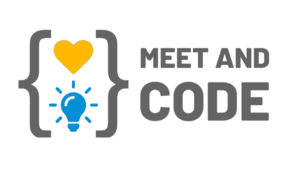Follow a line: Difference between revisions
From wikiluntti
No edit summary |
No edit summary |
||
| Line 1: | Line 1: | ||
<languages/> | |||
<translate> | |||
=== Introduction === | === Introduction === | ||
| Line 25: | Line 28: | ||
This course is supported by [https://meet-and-code.org/ Meet and Code]. The course is made in collaboration with [http://www.fllsuomi.org/ Robotiikka- ja tiedekasvatus ry]. | This course is supported by [https://meet-and-code.org/ Meet and Code]. The course is made in collaboration with [http://www.fllsuomi.org/ Robotiikka- ja tiedekasvatus ry]. | ||
[[File:MeetAndcodeLogo.png|thumb]] | [[File:MeetAndcodeLogo.png|thumb]] | ||
</translate> | |||
Revision as of 21:29, 4 September 2020
<languages/> <translate>
Introduction
There a multiple different methods (algorithms) to follow a line. We show two simplest methods (which can be coded with a huge variety), also zig zag linefollower and proportional line follower. See the linked pages for more references.
Robot
Any robot (with tires or treads, perhaps walking robots too) will work.
Sensors
One light sensor is needed.
Example Videos
Theory
Example Code
Exercises
This course is supported by Meet and Code. The course is made in collaboration with Robotiikka- ja tiedekasvatus ry.

</translate>